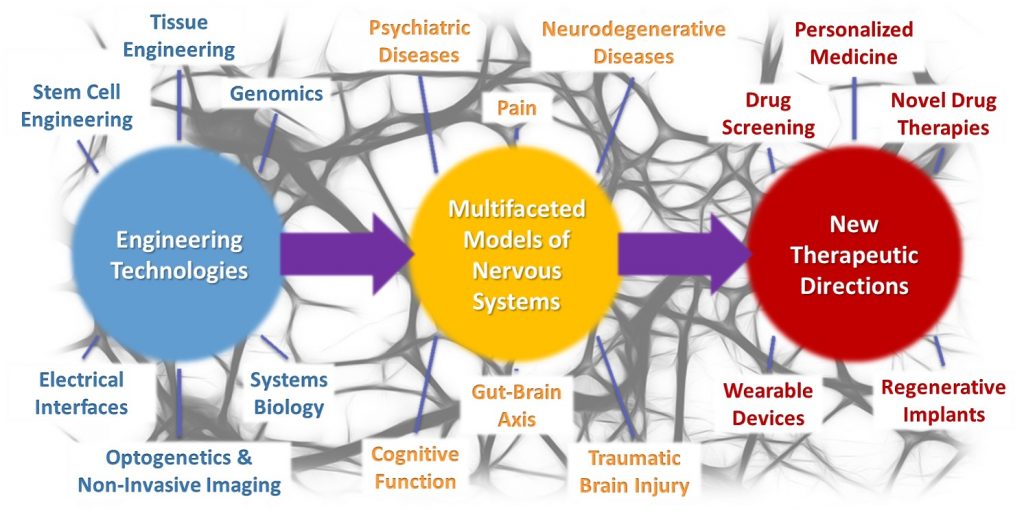The Initiative for Neural Science, Disease & Engineering (INSciDE@Tufts) is an interdisciplinary center with multi-scale focus on brain and peripheral nervous system structure, function, and disease. Launched in the fall of 2017 at Tufts University, the goal of the initiative is to elucidate the molecular pathways and cellular and neural circuit defects that cause neurodegenerative and psychiatric disorders. Led by the team of David Kaplan, PhD (Director, INSciDE; Professor & Chair, BME) and Michael Lovett, PhD (Deputy Director, INSciDE), the focus of INSciDE is to integrate bioengineering, stem cell biology, and regenerative medicine with technological innovation and therapeutic approaches to unravel the mechanisms of cognition and to uncover cures for neurological diseases, including Alzheimer’s Disease, Parkinson’s Disease, and Autism Spectrum Disorder.

This initiative seeks to transform the way brain-related studies are implemented through a unique approach that combines engineering technologies (e.g., tissue engineering, optogenetics, and non-invasive imaging), multifaceted models of nervous systems (e.g., neural circuitry, gut-brain axis, traumatic brain injury), and new therapeutic directions (e.g., personalized medicine, drug screening platforms, and regenerative implants). Utilizing bioengineered 3D brain tissue systems with tunable mechanical properties, versatile structural formats, and compatible cell moieties, these distinctive material properties allow for long-term in vitro studies without necrosis, matching the compliance and structure of native brain tissue as well as compartmentalizing various brain cell types for studying cellular interactions. This uniquely allows for inquiries into stem cell and neurological functions, complex neural circuit formation, and implantations to repair brain damage.
By coalescing interdisciplinary teams around these new technologies, INSciDE @ Tufts will accelerate the integration of bioengineered platforms into brain research through university-wide collaborations with Tufts researchers in Neuroscience, Biology, Molecular Biology & Microbiology, Chemical & Biological Engineering, and Biomedical Engineering. Further university outreach activities include engaging undergraduates in neuroscience research on the Medford & Boston campuses through the student-run Tufts Neuro Network, organizing departmental information sessions, and hosting open house events. Additional external collaborations (e.g., MGH, UPenn, USU, Stanford) help to advance the use of 3D bioengineered tissue systems in neurological research within the greater research community. Taken together, it is expected that findings and technological advances from the planned work of INSciDE will address the increasing prevalence and societal impact of brain disorders, diseases, and injuries.